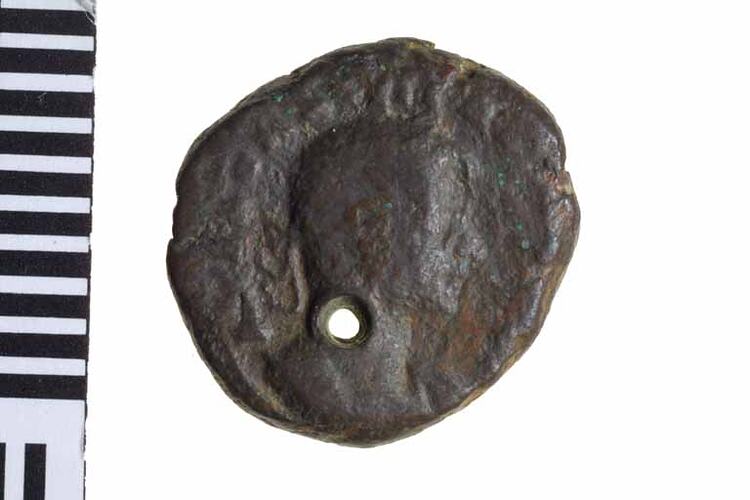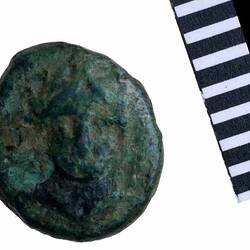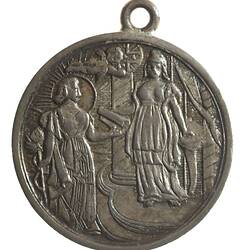John Speechly Gotch was born in Northamptonshire, England in 1829. His schooling included a brief period at Tollington Park, London, and by 1844 he was apprenticed to John Meadows, chemist and druggist. After a five-year apprenticeship and six months as an assistant he migrated to America. In Philadelphia he became an unpaid dentist, and in New York he was paid as a dental assistant. Less than four years after he arrived he sailed for Australia, only to be wrecked off Mauritius. He practiced dentistry there for almost a year before continuing his journey to Australia.
Gotch followed the well-beaten track to the Victorian goldfields, but was unsuccessful and returned to Melbourne in 1854. He sold newspapers for an elderly Scotsman, Alexander Gordon, who had recently leased a stall in the Western Market and become an advertising agent for the Argus. They soon became partners as Gordon and Gotch. Gotch married Elizabeth Miller Jones. Four of their nine children died in infancy, and a fifth predeceased her father.
Gordon sold his interest to Gotch in 1859 and returned to Scotland, by which time the company was pre-eminent in Melbourne as news and advertising agents and distributors of newspapers and periodicals from Britain. Gotch introduced his brother William into the business in 1860 and his brother-in-law Alfred Jones in 1861. They opened a branch in Sydney that year, and soon branches in London and Brisbane. Each branch was a partnership in which Gotch held a half share. Activities of the branches included advertising, a press telegraph service, and the import of stationery and printing supplies. Later the London branch engaged in general exports and the Australian offices took over agencies for importing goods including pianos and sewing machines.
The success of the business led to the fragmentation of the original company and the end of Gotch's exclusive ownership of the Melbourne house. In 1885 Gordon & Gotch Ltd was formed and shares were issued. By 1890 Gordon and Gotch had developed the networks and publishing traditions that it inherited from former competitors into a consolidated national market. The company's commercial advantage lay in its strong distribution network. Its name was changed to Gordon and Gotch Proprietary Limited in 1897, and Gotch himself steered the company through the 1890s depression. In spite of structural changes to its capital city branches, it remained an exclusive enterprise controlled by a small group of family relatives and accountants. Gotch became less active in business by 1899. Gordon and Gotch is still trading today.
Gotch had acquired pastoral interests in the Western District, and was linked to the East Melbourne Congregational Church and charities such as the Austin Hospital. He was also a donor of coins and medals to Museum Victoria and the State Library of Victoria. In 'Economics of the Australian Press' (MA thesis, Melbourne University, 1951) W. Corden emphasises the role played by Gordon and Gotch in Australian cultural history. Throughout the late nineteenth and early twentieth centuries, Gordon and Gotch's publications such as Glimpses of Australia reflected shifts in cultural identity and supported the idea of a federated Australia.
Gotch died on 23 September 1901 and was survived by his wife, two sons and two daughters.
References:
Australian Dictionary of Biography Online Edition http://www.adb.online.anu.edu.au/explore/A040313e.htm, accessed 15 Jan 2004.
Denis Cryle, 'Culture and Commerce: Gordon and Gotch Ltd. in Australia 1890-1940'.
News Agents Association of NSW and ACT Ltd website http://www.nana.com.au/info/history.htm, accessed 15 Jan 2004.
http://idun.itsc.adfa.edu.au/ASEC/HOBA96_Papers/cryle.html, accessed 15 Jan 2004.
More Information
-
Keywords
-
Localities
Melbourne, Victoria, Australia, Scotland, United Kingdom, United States of America
-
Authors
-
Article types


